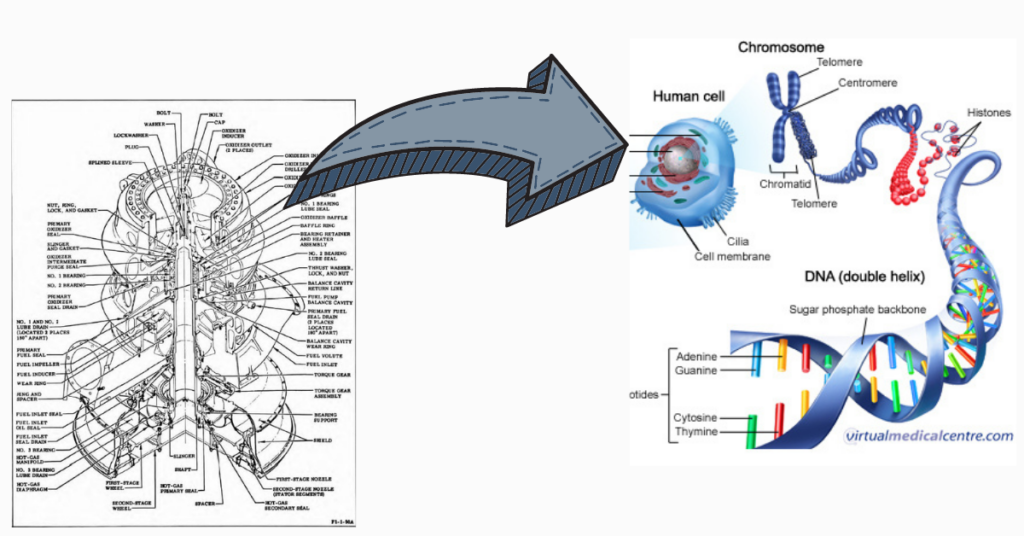There either is a God or there is not a God. There is no in between. There is not a kind-of, sort-of, maybe God. But how could we ever know if this God does or does not exist? Atheists would say there is no God. Theists would say there is a God. Agnostics would say there’s no way we know enough to decide one way or the other.
Can we prove which group is correct? We actually cannot prove anything with 100% certainty. This is what the agnostic typically focuses on. Since nothing is proven with 100% certainty, we could never know the answer about God’s existence with 100% certainty. But here is where that is misguided. Every day we accept things as truth even when we do not have 100% certainty of them.
We use something called presumption of fact, where a fact will stand to be true based on solid presumption of how we know the world works unless that fact can be refuted otherwise. In reality, we could never decide anything in a court of law without relying on this type of evidentiary reasoning. We cannot repeat the past and know something as 100% certain. So we rely on presumption of fact to establish what most likely occurred beyond a reasonable doubt. That is why that phrase is used in our justice system. Beyond a reasonable doubt.
For example, say I walk into a room and find a glass of milk knocked over on the counter and spilling onto the floor. I didn’t witness what happened and I don’t have any cameras around to replay the events that unfolded. However, because of how my world works, I know with some level of certainty that my youngest son has been in the room. He has a tendency to spill everything. That is a pretty solid presumption of fact.
But what if we add to that that earlier he asked me for something to drink to go with his chocolate chip cookies. And he and I are the only two people home. Now you can see my presumption about what happened is extremely solid.
If you were to offer a counter explanation of an alien spaceship that beamed a laser that knocked it over, you’re going to need to offer a large amount of evidence to show that took place. Or if you said the glass of milk knocked itself over, you will need some kind of prior experience that confirms that things can knock themselves over. In other words, my presumption of fact that my son spilled his milk will stand to be true unless you can provide sufficient evidence to overturn the most likely and logical explanation based on facts and an understanding of how things work.
In the same way, because of what we can observe in the world and how things work in this world, we have a solid presumption of fact there must be a god who is responsible for this world’s existence. That fact will stand to be true unless it can be proved otherwise.
My world now may involve lots of spilled milk, but at one time my world involved designing launch vehicles for NASA. No one would try to say that a launch vehicle sending humans into space was not the result of lots of design – and re-design. All that design requires some kind of intelligent designer behind it. Now, you didn’t witness it firsthand. You may not even personally know anyone who works at NASA. But you know those rockets and launch systems do not and cannot build themselves. You recognize some kind of designer is responsible for all that design. Therefore, you have a solid presumption of fact that there are intelligent designers behind the effort to build and design space launch vehicles.
What can that tell us about the existence of God? If there is that same kind of design evident in the world, then there must be some kind of designer responsible for it. That again would be a solid presumption of fact. Based on how we know things work, it is more likely that an intelligent designer is responsible for something that has been designed, whether it is natural or man-made.
Here we could go into all kinds of examples of this complex design within nature. I’ve written on this topic before where we could see the human body almost like that launch vehicle system. We need multiple organ body systems working together at the same time in order to function, just like the launch vehicle needs the electronics system working alongside the software, propulsion, structure, and engine systems.
But deeper within the human body, there is an even more compelling reason for the existence of God: information.
While we could see the launch vehicle required lots of intelligent designers to determine what components were needed to make the launch vehicle systems work, there is also a lot of intelligence required to draw out the schematics, diagrams, and blueprints for building and assembling the vehicle. Engineers rely on those drawings to effectively communicate design parameters so the vehicle can be properly built.
Much like the “some assembly required” furniture (which I love by the way), you can have an awesome table design, but if the instructions are unclear or jumbled (which let’s admit, they often are), you can end up with a non-functional table.
Our bodies are the same way. All living things are made up of cells. Cells are considered the basic building block of all life. And the basic design of the cell system is essentially the same in all living systems on earth – from bacteria to mammals. There is something every cell must have: DNA. DNA is “the basic blueprint of all life.”[i] The information found within DNA gives directions to the ribosomes for what proteins to make and it contains the instructions needed for cellular reproduction. It is like the instruction manual for assembling the launch vehicle.
Those blueprints are necessary for our cells to know what to do and how to create an organism. Something must tell your body to make two eyes, two lungs, and one stomach. Those blueprints though require information. It is estimated that the information contained in a simple cell is around one trillion bits of data instructing the cell on what to do and make.17
But these leads us to a very importation question. Where did that information come from? Information cannot appear out of nothingness. Yet the DNA molecule has a staggering amount of information. Because of how we know the world works, information requires an intelligent source. That is a solid presumption of fact based on experience and evidence around us.
However, our cells take it one step further. Not only do our cells have all that information, they have all that information stored in code.
E.H. Andrews, Professor of Materials in the University of London says, “It is not possible for a code, of any kind, to arise by chance or accident…. A code is the work of an intelligent mind. Even the cleverest dog or chimpanzee could not work out a code of any kind. It is obvious then that chance cannot do it…. Codes do not arise from chaos.”18
Bill Gates said, “Human DNA is like a computer program but far, far more advanced than any software ever created.”
What is the presumption of fact? That information appeared on its own and assembled itself into a code? There is nothing in the way this world works that indicates that is a plausible explanation to the existence of DNA. Is it more logical that the genetic code contained in DNA arose from a random, undirected chaotic process or from an intelligent organized source? Logic tells us that code does not come from chaos; therefore, logic should tell us that something intelligent provided the information for DNA and devised a workable code for the information to be contained. That is the solid presumption of fact.
If we can agree that computer code could not be randomly generated to execute a simple program, then we must agree that proteins, RNA, and DNA could not be randomly thrown together to execute the basic functions of a cell in order to sustain life. One must establish where the information contained in DNA could have originated. Information requires an intelligent source. It is not probable that ordered, organized information randomly occurred out of chaos.
What if you walked onto the beach and found a bunch of rocks that made different shapes along the sand? There is the slight possibility that the waves and wind and maybe a storm moved those rocks and shells around to make a few shapes. But what if those shapes were in a pattern, like square-triangle-square? Or what if they were actually letters of our alphabet? That becomes a little less likely that it was from a natural process.
Imagine then that those letters were formed in the correct location to spell your name? Now you’re thinking somebody must have come out and arranged them on purpose for that. But what if they were arranged to say, “Hey, go fix some lunch!” Now, those rocks have more than just a pattern. The rocks have recognizable shapes in a specific order, with syntax and grammar, and useful information that give direction. Now, what if it included the recipe for your favorite meal. Now it even includes instructions! That requires intelligence.
This is the level of intelligence required for our genetic code, which then informs the creation of everything the cell needs to survive. It is the blueprint for designing all of life on earth. The presumption of fact is that kind of coded information requires intelligence.
This strikes a blow a both the atheistic explanation and the agnostic one. We do have enough “information” to know that information requires intelligence.





2 thoughts on “Who Developed the Schematics for our Cells?”
Love this post. Perfectly logical and coherent argument for God from Information theory. Keep us the great work!
Thank you! 🙂
Comments are closed.